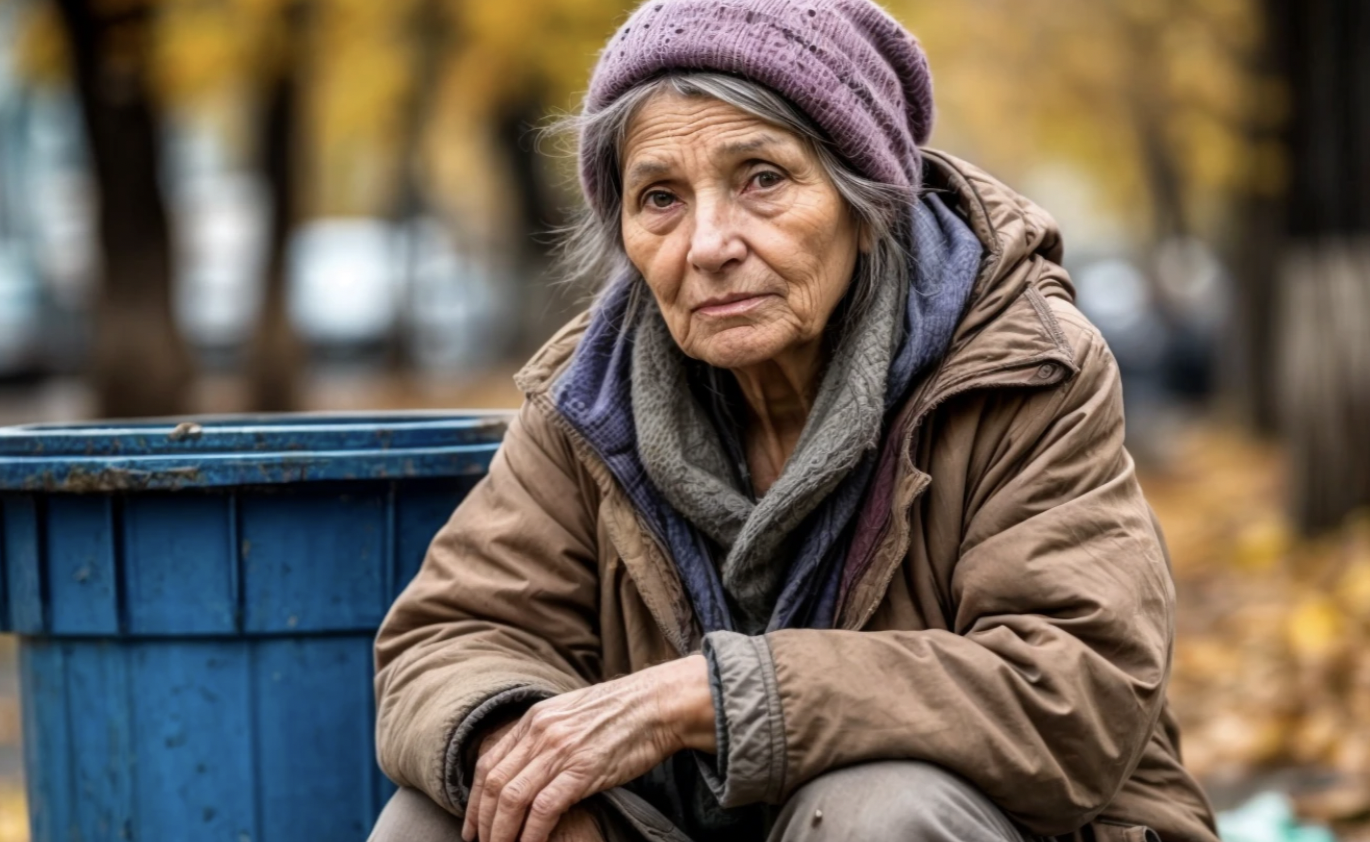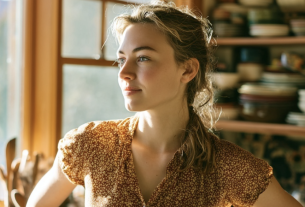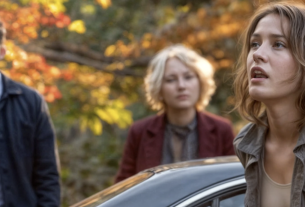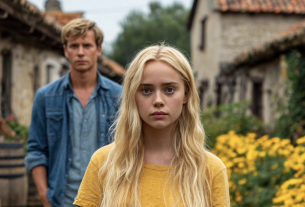Going to the homeless again? That’s the fifth time this week,” I said, sipping my coffee while browsing the morning news on my tablet. “They probably consider you a saint by now.”
Alina froze, holding the bags. That familiar smile appeared on her face — restrained, with a hint of hurt, a look I’d learned to recognize over years of living together.
“Igor, these are people with difficult lives, not just vagrants.”
“Of course,” I waved her off without looking up from the screen. “And each one surely has a dramatic story about how unfair life was to them.”
Sunlight flooded our modern kitchen, highlighting its flawless design. Life had turned out well — I could say that confidently every morning.
“There are many educated people among them,” Alina carefully packed containers of food into a large bag. “Former teachers, engineers, musicians…”
“And not one of those geniuses figured out how not to end up on the street?” I smirked, raising an eyebrow. “Amazing.”
Alina hesitated for a moment, as if she wanted to argue, but then changed her mind. Instead, she gave me a quick kiss on the cheek and grabbed the car keys from the table.
“I’ll be back by lunch. Don’t wait.”
The door closed almost soundlessly. I was left alone, and suddenly, I felt a strange emptiness. It wasn’t the usual irritation — it was something else… something closer to sadness.
I put the tablet aside. Outside, autumn leaves spun in the wind. Seventeen years ago, on a similar cold autumn day, my mother disappeared.
I had been seventeen too. I remembered every detail: my father first raged, then fell silent, and finally just gave up. “She left for another man,” he told everyone who asked.
But I remembered her — her warm hands, her gentle smile, and the scent of her jasmine perfume.
Moved by a sudden impulse, I grabbed my keys and left the house. The road to the shelter took only fifteen minutes.
The shabby building looked abandoned, if not for the line of people at the entrance. I stopped across the street and watched from the car.
Alina was handing out food packages, giving each person attention. In her elegant coat and with her expensive handbag, she looked like an alien from another world among those worn-down people.
Lowering the window, I let the cold air in. My throat tightened with a wave of memories.
“Igoryosha, put on a scarf, it’s damp outside,” my mother’s voice echoed vividly in my mind.
I gripped the steering wheel. Why was I here? To prove that my wife’s charity work was just a whim of a privileged woman?
At that moment, a woman approached Alina — someone I hadn’t noticed before. She moved slowly, as if each step cost her pain. There was something familiar in her gait.
I leaned forward instinctively.
The woman lifted her head to accept a package from Alina, and sunlight illuminated her face — worn, deeply wrinkled, her eyes dull.
But it wasn’t that which made me fling the car door open. On her forehead, just above the right eyebrow, was a birthmark shaped like a crescent moon.
Exactly like my mother’s.
My legs felt like lead, but I crossed the road. Alina noticed me, raising her eyebrows in surprise. The woman turned toward me.
Our eyes met — there was no recognition in hers, only wariness and endless fatigue.
“Igor?” Alina asked, confused. “What are you doing here?”
Words stuck in my throat. I simply pointed at the woman’s forehead, then at my own. Alina followed my gesture, her eyes widening.
“Excuse me,” she asked the woman gently, “what’s your name?”
“Maria,” the woman croaked, her voice hoarse and unfamiliar. “I have to go.”
She tried to leave, but I stepped forward.
“Maria… your last name?”
The woman hesitated, clutching the food package to her chest.
“I don’t remember,” she said nervously. “A lot has been erased.”
Alina looked at me questioningly. My hands trembling, I pulled out my phone and scrolled to the very bottom of the gallery, finding an old photo — the only one I had saved.
“Please, look,” I said, showing her the screen. “Does this look familiar?”
The photo showed my mother — beautiful, smiling, with the same crescent birthmark on her forehead. Beside her was a lanky seventeen-year-old me with an awkward haircut.
The woman stared at the photo for a long time. Her hands trembled slightly.
“I… I’m not sure,” she said, looking up at me, confused. “Maybe. I had a head injury. The doctors said… amnesia.”
Something tore inside me. I could hardly breathe.
“When did it happen?” My voice didn’t sound like my own.
“Many years ago,” she shrugged. “I woke up in a hospital. Didn’t remember my name or anything. Only ‘Maria’ stayed with me.”
Alina gripped my elbow tightly.
“Igor, how many years ago did your mother disappear?”
“Seventeen,” I said automatically, still staring at the woman. “But she… she looked different.”
But those eyes… Large, green, though now dimmed. And the birthmark — exactly the same.
“Did you have children?” I managed to ask.
The woman flinched. A shadow of pain crossed her face.
“I think… yes. A boy. Sometimes I dream of him, but the name slips away. The doctors thought maybe it was just fantasy. I tried to search, but…” She helplessly spread her arms.
Alina stepped away and returned with a bottle of water.
“Let’s sit down,” she suggested, pointing to a bench outside the shelter.
The woman sat uncertainly on the edge. I sat opposite her, afraid to get too close.
“My mother’s name was Maria Koroleva,” I said. “She disappeared seventeen years ago. Just never came home. The police searched but…”
“Koroleva?” the woman repeated, flinching. “That… sounds familiar.”
“And do you recognize him?” I showed her a photo of my father, young and smiling.
She stared at the screen, and then her eyes filled with tears.
“Aleksei?” she whispered. “That name… it came back to me. Aleksei.”
My father’s name was Aleksei.
The shelter faded behind us as we drove. The road blurred before my eyes while I followed familiar turns almost automatically.
Alina sat silently beside me. In the back seat, wrapped in a blanket, the woman — in whom I was now recognizing more and more of my mother — slept quietly.
“Are you holding up?” Alina touched my wrist. Her fingers were warm, anchoring me.
I shook my head. A storm raged inside — hope, fear, anger, confusion.
“How is this possible? Seventeen years… Where was she?”
Alina squeezed my shoulder reassuringly.
“We’ll need to talk to doctors. If she really had amnesia after a trauma…”
“What if it’s just a coincidence?” I interrupted. “Just a resemblance?”
“The birthmark, the name, she recognized your father’s name,” Alina shook her head. “Too many coincidences.”
I glanced in the rearview mirror. The woman’s face, smoothed by sleep, clearly revealed my mother’s features — the high cheekbones, the nose, even the slight crease between her brows.
“Where are we going?” I asked.
“To the hospital, of course,” Alina said, surprised. “She needs a check-up. We need answers.”
I nodded, gripping the wheel. The thought that this woman could really be my mother — and that I hadn’t looked for her — burned inside.
“Thank you,” I said hoarsely. “For helping the homeless. For being… you. I was wrong.”
Alina said nothing, only squeezed my hand tighter.
At the hospital, we faced suspicion at first. We had to explain, prove, convince the staff we weren’t scammers trying to exploit a homeless woman.
I showed documents and photos; Alina used all her charm.
Finally, after endless paperwork, they agreed to examine her and take samples.
In the corridor, the head doctor, a tall man with silver hair and sharp eyes behind thin glasses, stopped us.
“You know,” he said quietly, with that special calm doctor’s tone, “your case isn’t as unique as it might seem. Retrograde amnesia often follows head injuries.
Memory becomes like a broken mirror — people see fragments but can’t piece them together. Sometimes memories return if triggered properly.”
“What should we do?” I asked.
“If you suspect you’re related, there’s a clear way to confirm it,” the doctor said, peering over his glasses. “A DNA test.”
Within an hour, they collected samples. We were told the results would take a few days.
“We’re going to my father’s,” I decided as we left the hospital. “He needs to see her.”
Alina hesitated:
“Maybe we should wait for the results? What if it’s just a coincidence?”
“I feel it’s her,” I said. “My father will know.”
My father lived in a countryside house after I bought my own place. He had never remarried, even after all these years.
When we pulled up, my hands trembled. I helped the woman out, and she looked around with interest.
“Beautiful place,” she said.
We climbed the porch steps, and I rang the bell. My father’s steps were heavy and measured. When he opened the door, he looked at us, surprised:
“Igor? Something wrong?”
Then he saw her — and froze. His face went pale, his fingers gripping the doorframe.
“Masha…” he whispered. “God, is it really you?”
In the living room, the tension was unbearable, a surreal state where dream and reality merged.
The woman huddled in a corner of the armchair like a frightened bird. My father sat opposite, too afraid to move.
Alina quietly placed cups on the table and stepped back, sensing the sacredness of the moment.
“You’ve got some wrinkles now, Lyosha,” the woman said suddenly, in a voice I recognized instantly — the way only my mother had spoken to me. “And your temples turned gray. But your eyes… they haven’t changed.”
My father gasped.
“You… remember me?”
“Not everything,” she shook her head. “Just fragments. But when I saw you, a door opened.”
I sat still, afraid to disturb the fragile moment.
The woman — my mother — slowly scanned the room until her gaze rested on me.
“And you’ve changed,” she smiled. “My boy.”
My throat tightened until I couldn’t speak.
“Where have you been all these years? What happened?” my father asked, his voice trembling.
She rubbed her temples.
“Memories come in flashes… I remember riding somewhere… then the accident. The hospital. No ID, no memory.”
“They called you Maria because you kept repeating it,” she added quietly.
“We searched for you,” my father said hoarsely. “Police, detectives… Then they told us to accept that you were gone.”
“I lived in different places,” she said. “Worked where I could. Without documents, without a past… it’s almost impossible. The last years were the hardest.”
I couldn’t hold back anymore — I knelt by her chair.
“Mom,” the word, after seventeen years, burned on my lips. “You’re back.”
She gently touched my cheek.
“Igor, my boy. I don’t remember everything, but I feel it… you are my son.”
Alina quietly cried in the background. My father sat frozen, fearing it was all a dream.
“You’ll stay with us,” my father said firmly. “No more shelters.”
Mother — I no longer doubted it was her — smiled weakly.
“I don’t want to be a burden.”
“You’ll never be a burden,” I said, gripping her hand. “Never.”
That evening we spent talking. My father pulled out old photo albums, and with every picture, more of her memory returned.
“I remember this day,” she said, pointing at a picnic photo. “Igor fell off his bike and scraped his knee.”
“You remember,” I whispered, barely holding back tears.
Days later, the DNA test confirmed what we already knew: she was Maria Koroleva — my mother.
Doctors said there was no guarantee she would regain all her memories, but that didn’t matter.
We were a family again.
The next morning, when Alina and I returned home, I felt a deep, long-forgotten relief — as if a heavy burden I had carried for years had finally been lifted.
“And what, no more jokes about my ‘pointless charity runs’?” Alina teased as she made the bed.
I hugged her tightly, burying my face in her hair.
“You know… you didn’t just bring my mother back. You changed my whole view of what really matters,” my voice broke.
With her stubbornness and faith in people, she showed me that the world doesn’t change through grand gestures or big money — sometimes, it’s simple human kindness.
Alina turned to me, her eyes shining.
“I never did it for show,” she whispered, touching my face. “I just couldn’t do otherwise.”
Later, we visited my father’s house. Mother was already moving confidently around the kitchen, helping set the table — as if she had never left.
Sunlight poured through the panoramic windows, turning the falling leaves into a shower of gold.
“How do you like it?” I asked, sitting down beside her as she chopped salad.
She looked at me — that same look with the sparkle in her green eyes that I thought was lost forever.
“You know…” she said thoughtfully, “it’s hard to explain… It’s like I wandered in the fog for a long time, and now, finally, I stepped into the light. I’m home, Igor. Really home.”



